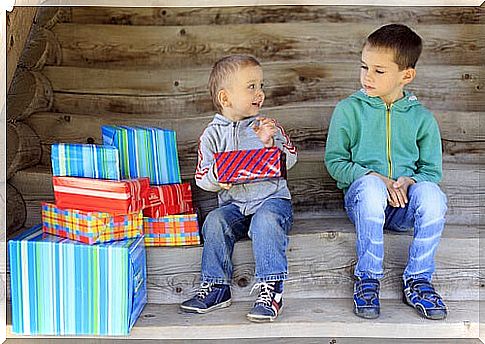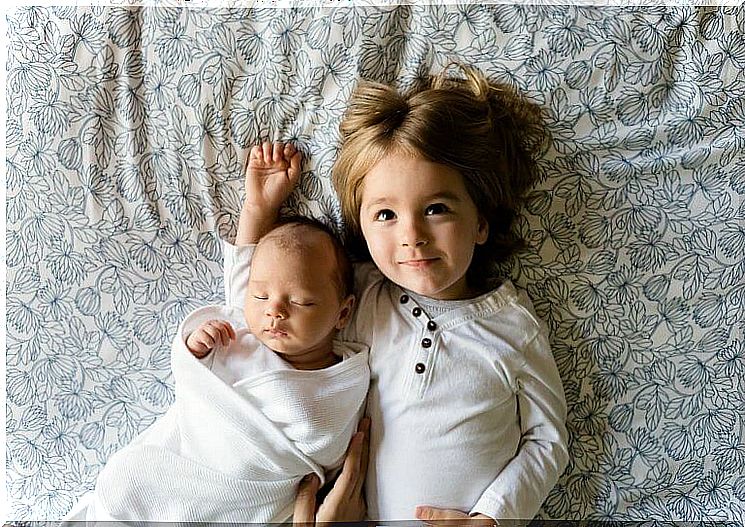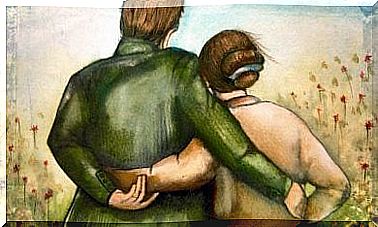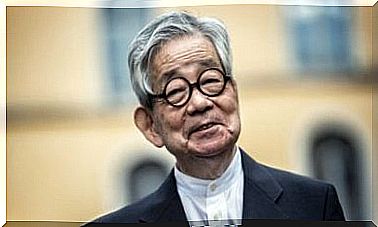Jealousy Between Siblings: Understanding The Dethroned Child

Jealousy between siblings is relatively common and normal in childhood. One, suddenly, at the stroke of a pen, is no longer the king of the house. Now it turns out that he has to share the throne with someone who seems to require more attention, with someone who collects many more looks and smiles. Someone I’m going to start comparing myself to …
This situation in which you no longer occupy that place where you were so comfortable, where you felt so safe, ends up generating fear. Fear of losing a privileged place. A place from which everyone looked at him, protected him … They loved him. Now it seems that wanting (already fully established and secure) is threatened.
The dethroned little boy’s mind would think something like… “I’m no longer important to my parents! I have to do something. I also want to receive the attention that he is receiving! ” So this is where those endless battles to find the attention you used to get will begin. An attention that will now have to be shared.
When the birth of the brother is a catastrophe for the firstborn
Frustration and helplessness shake hands with our dethroned child. They whisper messages of fear, and sometimes somewhat catastrophic messages. They all have to do with your survival. Messages in which one is no longer reciprocated. You are no longer worthy of the love you used to receive. Now it seems that you have to compete for that love. You have to do things to regain the same level of pampering and attention that you previously received effortlessly.

The normal thing is that this jealousy between siblings will disappear as the child grows. The problem comes when this rationally logical jealousy lengthens and intensifies over time.
Here other variables that have to be considered would already be intervening. Many times, in fact, the jealous child is given more attention but this is not enough for him. In some ways it is as if a way of getting away with it and receiving certain “privileges” had been established in him that he would not otherwise receive so easily.
It is important to understand that each case is unique and has its own idiosyncrasies. There are children who already have a certain predisposition to jealousy. There are children in whom these episodes of anger (towards the new sibling) develop only with this novel situation … Or there are births that coincide or trigger a series of emotional disorders in the parents … Each family and its circumstances is unique.
Understanding the origin of jealousy will help us better understand our child
Since each case is unique, it will be necessary to delve into the origin of this jealousy between siblings. These may have to do with how is the child’s personality or with how is the affective style of his parents. Also jealousy between siblings can have to do with the emotional moment (in the family) in which the new birth has occurred … etc.
Once we have understood the place from where our dethroned child is suffering, we can better understand him and act. The child needs that we can empathize with him. The child has his own emotions and they are just as worthy and deserving of respect, no matter how old he is. Another different thing is that we cannot allow those emotions to generate more suffering and family chaos than they are already generating.
The episodes of rage and anger against the little brother will have to be punished. Either withdrawing our attention or always giving our attention and approval towards the positive behaviors that our child shows. Any behavior of cooperation, self-confidence, and self-confidence, it is good to recognize, value and reinforce it. Since, to a large extent, that is what the child asks in silence. Feel safe and confident in yourself and your environment.
Creating an emotionally stable environment for the child is part of the solution
Highly changing and unstable environments end up creating more chaos in the emotional development of the child. For this reason, as far as possible, we must create healthy environments in which our little one feels safe from the affection of his parents towards him. Children learn by imitation most of the time.

For this reason it is very important to instill values in our child that he can extrapolate in his interactions. Values such as solidarity or joy for the good of others. Instead of perceiving the achievements of their peers with anger and envy, perceiving them as something that does not affect their safety will help our child to see reality with another color. Less blackened, cleaner and healthier for your emotional development. Thus avoiding the emergence of jealousy between siblings.
It will be difficult for the child to be happy about the good of his brother if he finds in his parents attitudes of rejection towards the achievements or the good news for his peers. If you encounter the obstacle of constant comparison with your brother.
The child will feel more secure in an environment in which the good things in him are valued, rather than in an environment in which his failures are constantly pointed out. It would be a “positive” education, in which we applaud healthy behaviors and in which we try to extinguish the least adaptive and most disruptive.









